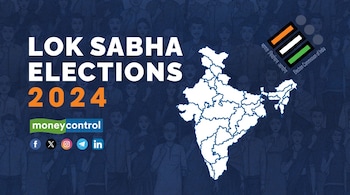India General Elections 2024
Introduction
India, the world's largest democracy, is gearing up for its General Elections in 2024 amidst anticipation and fervor. This pivotal event in Indian politics not only shapes the destiny of the nation but also reverberates on the global stage. Let's delve into the intricacies of India's electoral landscape, examining its significance, key players, issues, and the broader implications.
Background of Indian General Elections
India's electoral history traces back to its independence in 1947, with the adoption of a democratic framework enshrined in its constitution. Over the decades, the electoral process has evolved, incorporating reforms to ensure inclusivity and fairness.

Key Players and Political Parties
A myriad of political parties, ranging from national behemoths to regional powerhouses, compete for electoral dominance. The Bharatiya Janata Party (BJP), Indian National Congress (INC), and numerous regional parties play pivotal roles, each with its unique ideological stance and voter base.

Issues and Campaigns
The electoral battleground is rife with a plethora of issues, spanning from economic reforms to social justice and national security. Political campaigns are meticulously crafted to resonate with voters, leveraging slogans, promises, and targeted messaging.
Conclusion
The General Elections of 2024 epitomize the essence of Indian democracy, embodying the hopes, aspirations, and democratic ethos of its citizens. Amidst the cacophony of political discourse and electoral fervor, the spirit of democracy shines bright, reaffirming India's commitment to pluralism and inclusivity.
FAQs
-
What is the voting age in India?
The voting age in India is 18 years, as mandated by the Representation of the People Act, 1950.
-
How often are general elections held in India?
General elections in India are typically held every five years, unless dissolved prematurely.
-
Can non-resident Indians (NRIs) vote in Indian elections?
Non-resident Indians (NRIs) are not eligible to vote unless they are physically present in their respective constituencies during elections.
-
What role do independent candidates play in Indian elections?
Independent candidates can contest elections without affiliating with any political party, offering alternative choices to voters.
-
How is the winner determined in Indian elections?
The candidate securing the highest number of votes in a constituency is declared the winner under the first-past-the-post electoral system.